This is a guest blog written by Oxfam France in support of the No Profit on Pandemic campaign and translated into English.
Sign the initiative: www.noprofitonpandemic.eu
One year ago, the Netherlands mourned its first death from the coronavirus. Now there is hope: the vaccine against Covid-19 is here! But not for everyone.
Wemos, Oxfam Novib, TNI, FNV, Health Action International, De Goede Zaak, Farma ter Verantwoording and War Child Holland are putting their weight behind the European Citizens Initiative No Profit On Pandemic. Together, we are encouraging one million European citizens to join us and sign the initiative.
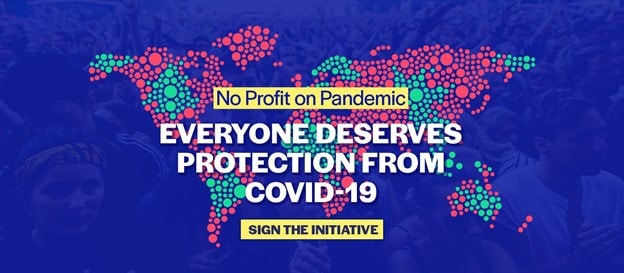
The European Union has ordered enough doses to vaccinate twice its population, Canada’s stock will cover theirs five times. While it is normal for these countries to seek to protect their populations, this should not be to the detriment of the rest of humanity. To overcome a crisis that affects the entire planet, cooperation must come before competition. Ensuring fair and equitable access to safe vaccines is the biggest challenge of 2021.
We are committed to this fight and each one of us can take action by supporting this critically important European Citizens’ Initiative, launched last November, to put global health before pharmaceutical profits.
The European Citizens’ Initiative: No profit on the pandemic
What is a European Citizens’ Initiative?
Citizens of the European Union have the right to address the European Commission directly via a European Citizens’ Initiative (ECI) in order to propose a concrete legislative amendment. In order for an initiative to be considered by the Commission, the Initiative must gather the signatures of one million citizens in at least a quarter of the EU Member States. This is an important democratic tool.
Why a European Citizens’ Initiative on Vaccines?
Even before vaccination campaigns began in Europe, the issue of the lack of transparency around the European Commission’s contracts with pharmaceutical companies was already a problem.for several months, it has been clear that the richest countries are monopolizing future doses to the detriment of a large part of the world’s population: in September, 51% of these doses had already been ordered by countries representing just 13% of the world’s population.
On November 30th 2020, an ECI was launched by various organizations from across the continent: NGOs, trade unions, healthcare associations, political parties, student movements. Together, we hope to mobilize the one million citizens needed to get an answer from the Commission.
Five reasons to support the European Citizens’ Initiative
No. 1: Protecting Everyone Equally
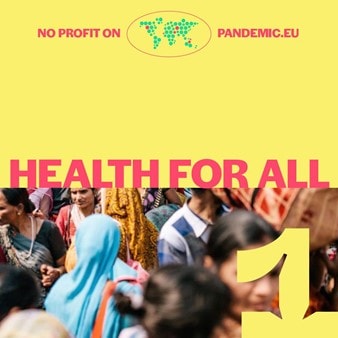
On January 18th 2021, the director of the World Health Organization (WHO) sounded the alarm: we’re in a two-tier system that leaves millions of people without access to vaccines. If this trend continues, the poorest countries will simply not be able to vaccinate their populations until 2022. And in many countries, just one in ten people will be vaccinated by the end of 2021.
Facilitating access to vaccines for all those who need them is not only a matter of justice and equality, but also a matter of common sense in the face of a global epidemic. We will only end the crisis once the spread of the virus is controlled around the world. The emergence of new virus strains in recent weeks – as in the UK and South Africa – is a warning: the threat of a resurgence of the epidemic in new forms is a risk to everyone.
No. 2: Ensuring transparency and restoring confidence
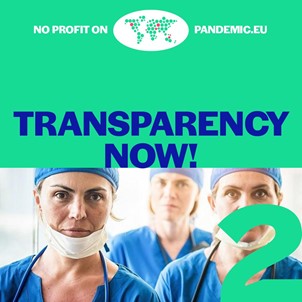
A lot of mistrust has been expressed in recent months around vaccines, which represent one of our best hopes for emerging from the pandemic. The unprecedented speed of their development, often based on new innovative technologies, has provoked legitimate questions from members of the public. Their concerns must be answered with the utmost transparency.
However, the European Commission, which has received a mandate from the EU Member States to negotiate with pharmaceutical companies, remains dangerously opaque. We demand transparency around the contracts signed with the pharmaceutical companies, on the sales prices and on the results of research and clinical trials. This is a non-negotiable step for restoring the trust of citizens.
No. 3: Demanding public control over use of public money
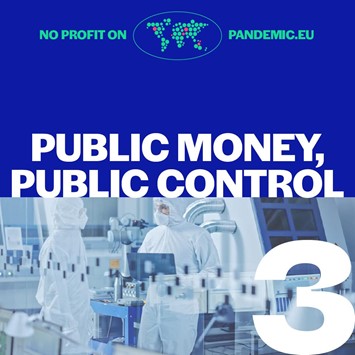
Since the onset of the health crisis, governments around the world have mobilized nearly $10 billion in public funds for research and development of vaccines and other treatments against COVID-19. Sanofi, the leading French pharmaceutical company, has received 200 million euros from the French government and 2.1 billion dollars from the United States for the development of such a vaccine.
But there are very few controls and conditions demanded in exchange for all these billions. Pharmaceutical companies remain free to set their prices on the sale of vaccine doses, which range from $3 to more than $30 per dose. The US company Pfizer, whose vaccine developed with Germany’s BioNTech was one of the first to be administered, could make a profit margin of 20-30%. At a time when millions of people are dying from COVID-19, and up to 500 million people worldwide could be pushed into poverty due to the economic consequences of the pandemic, such profits would be indecent.
No. 4: Putting Cooperation before Competition
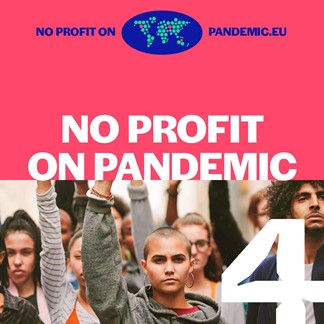
Faced with a common challenge, only a common response based on the broadest possible cooperation will enable us to overcome this crisis. Many of us are making sacrifices on a daily basis as our contribution. But the status quo of competition between the major pharmaceutical companies has not yet made a similar sacrifice. This competition is made possible by the system of patents and intellectual property rights that guarantee pharmaceutical companies that develop treatments or vaccines a monopoly on their production, marketing and pricing. Right now, for example,despite the enormous need for vaccine production, only Pfizer has the right to produce its vaccine for the sole purpose of guaranteeing its profits.
This is the same system that for years has prevented millions of people living with HIV and AIDS from accessing life-saving treatments. This system must be challenged to allow all countries with the capacity to produce these vaccines to do so. This is especially the case given that their development has been made possible in large part by public money. Steps have been taken by India and South Africa at the World Trade Organization (WTO) to suspend intellectual property agreements. But the rich countries, led by the European Union, have been opposing them for months. Since last summer, the WHO has also developed the C-TAP platform to allow the pooling of intellectual property rights. But no company or research institutions has yet voluntarily agreed to participate. The pooling of intellectual property rights would greatly increase production capacities and thus potentially accelerate vaccination campaigns in the Netherlands, Europe and the rest of the world. Are the benefits of pharma companies really worth more than our lives and health?
No. 5: People have the power
As citizens, we have the power to change this situation. It was thanks to public pressure that the European Commission started to publish some of its contracts with pharmaceutical companies.
And during the HIV crisis, massive public mobilisation forced pharmaceutical companies to drop their monopolies.
When we reach one million signatures, the European Commission will have to respond to our demands for transparency, accountability and equal access to these vaccines. . Together, we can make sure that everyone, everywhere is safe. Because no one is safe, until we all are safe.
Sign the European Citizens’ Initiative today by going to www.noprofitonpandemic.eu
Article written by Oxfam France: 5 raisons de soutenir l’initiative citoyenne européenne sur les vaccins